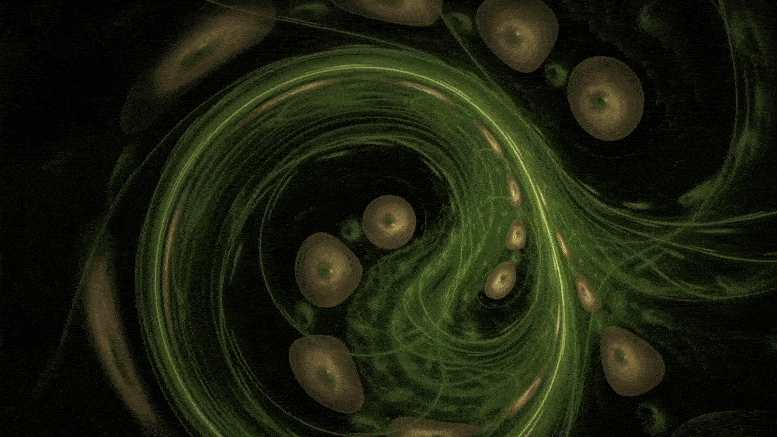
The strongest permanent magnets today contain a mix of the elements neodymium and iron.
Physicists at Radboud University and Uppsala University have shown that neodymium behaves like a so-called ‘self-induced spin glass,’ meaning that it is composed of a rippled sea of many tiny whirling magnets circulating at different speeds and constantly evolving over time.
Understanding this new type of magnetic behavior refines our understanding of elements on the periodic table and eventually could pave the way for new materials for artificial intelligence.
That’s how you could perceive the ‘aging’ process in neodymium.” Alexander Khajetoorians, professor in Scanning probe microscopy, together with professor Mikhail Katsnelson and assistant professor Daniel Wegner, found that the material neodymium behaves in a complex magnetic way that no one ever saw before in an element on the periodic table.
Spin glasses derive their name-sake from the amorphous evolving structure of the atoms in a piece of glass.
In this way, spin glasses link magnetic behavior to phenomena in softer matter, like liquids and gels.
Contrary to regular magnets, spin glasses have randomly placed atomic magnets that point in all kinds of directions.
Self-induced spin glasses are made of whirling magnets circulating at different speeds and constantly evolving over time.
Spin glasses have been known to sometimes occur in alloys, which are combinations of metals with one or more other elements and with an amorphous structure, but never in pure elements of the periodic table.
“With this advancement in high-precision imaging, we were able to discover the behavior in neodymium, because we could resolve the incredibly small changes in the magnetic structure.
This finding opens up the possibility that this complex and glassy magnetic behavior could also be observed in uncountable new materials, including other elements on the periodic table.
“The complex evolution of neodymium may be a platform to mimic basic behavior used in artificial intelligence,” Khajetoorians continues.
“You could never build a brain-inspired computer with simple magnets, but materials with this complex behavior could be suitable candidates,” Khajetoorians says
May 26, 2020
May 26, 2020
